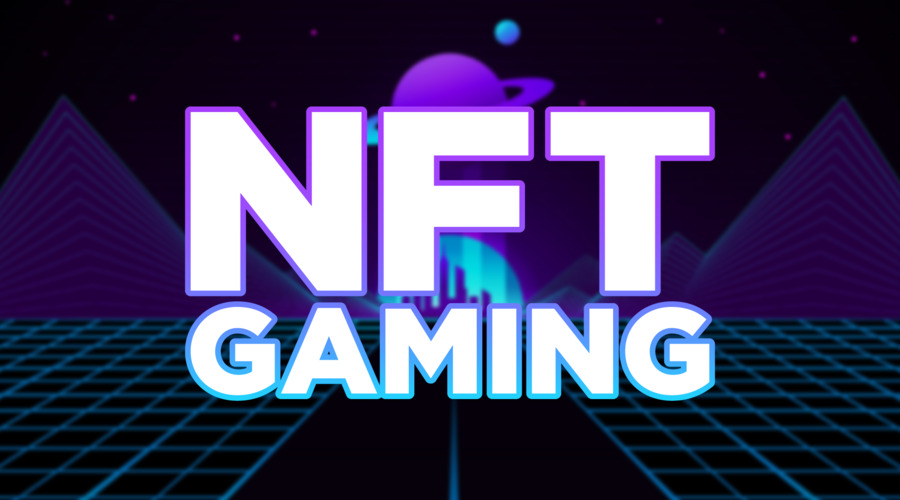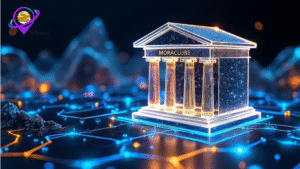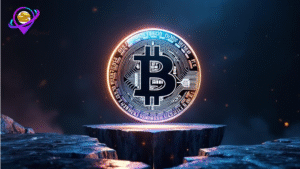The world of gaming has always been a breeding ground for innovation and creativity. The emergence of Non-Fungible Tokens (NFTs) has opened up new avenues for the gaming industry to create unique and valuable digital assets. This article explores the potential of NFTs in the gaming industry, specifically how they can create new art forms in gaming.
What are NFTs?
NFTs are unique digital assets that are stored on a blockchain. Unlike fungible assets like cryptocurrencies, NFTs are non-fungible, meaning that each NFT is unique and cannot be replicated. NFTs can be anything from digital art, music, videos, and even in-game items.
The rise of NFTs has disrupted the art world and created a new digital art market. In gaming, NFTs have the potential to create new forms of art that are unique, valuable, and truly one-of-a-kind. With NFTs, gamers can own and collect in-game assets that have real-world value, which was not possible before.
How NFTs are Changing the Gaming Industry
NFTs have the potential to revolutionize the gaming industry by creating new art forms in gaming. Here are some ways in which NFTs are already changing the gaming industry:
1. Ownership and Trading
NFTs provide gamers with actual ownership of in-game items. For instance, a player can own a unique sword, armor, or even a skin that no other player has. This creates a new level of rarity and exclusivity, which can be traded and sold on NFT marketplaces like OpenSea or Rarible.
2. Value and Rarity
NFTs can be used to create truly unique and rare in-game items, which can be sold for real-world money. This provides gamers with a new way to earn income by playing games, which was not possible before.
3. Digital Art in Games
NFTs also provide game developers with new opportunities to create digital art in games. For instance, a game can have unique collectibles, artwork, and even unique levels that can be owned by players. This creates a new type of gaming experience that is not only fun but also valuable.
4. New Gaming Economies
NFTs can also be used to create new gaming economies, where players can earn money by playing games. This creates a new type of gaming experience, where players are not just playing for fun, but also for real-world value.
Challenges and Opportunities of NFTs and Gaming
While NFTs have the potential to create new art forms in gaming, there are also challenges that need to be addressed. Here are some of the challenges and opportunities associated with NFTs in gaming:
1. Accessibility
One of the biggest challenges with NFTs in gaming is accessibility. While NFTs provide gamers with new opportunities to earn income by playing games, not all gamers have access to the necessary resources to participate in the NFT marketplaces. This includes access to cryptocurrency wallets and exchanges, as well as the necessary knowledge to navigate the complex world of blockchain technology.
2. Regulation
Another challenge with NFTs in gaming is regulation. While NFTs are still largely unregulated, there is a growing concern about their potential impact on the gaming industry. For instance, some worry that NFTs could lead to a form of gambling, where players spend money on in-game items with the hope of making a profit.
3. Security
NFTs are stored on a blockchain, which is known for its security. However, there are still concerns about the security of NFTs, particularly when it comes to the storage of private keys. If a private key is lost or stolen, the NFT associated with it is also lost.
4. Innovation
Despite these challenges, there are also opportunities associated with NFTs in gaming. NFTs provide game developers with new opportunities to create innovative and unique gaming experiences. By creating rare and valuable in-game items, game developers can incentivize players to explore and engage with their games in new ways.
5. Community Building
NFTs also provide an opportunity for community building within the gaming industry. By creating unique and valuable in-game items, players are incentivized to form communities around their favorite games. This can lead to a more engaged and passionate player base, which is essential for the long-term success of any game.
Ethical Considerations of NFTs and Gaming

While NFTs have the potential to create new art forms in gaming and provide players with new ways to earn income, there are also ethical considerations that need to be addressed. Here are some of the ethical considerations associated with NFTs in gaming:
1. Environmental Impact
NFTs are created and traded on blockchain networks, which require a significant amount of energy. This energy consumption has led to concerns about the environmental impact of NFTs. While some blockchain networks are more energy-efficient than others, the overall impact of NFTs on the environment is still a concern.
2. Economic Inequality
While NFTs provide players with new ways to earn income by playing games, they also have the potential to widen economic inequality. Players who are able to afford rare and valuable in-game items can profit from them, while those who cannot afford them may be left behind. This can create an unfair playing field in the gaming industry.
3. Cultural Appropriation
NFTs can also raise concerns about cultural appropriation in the gaming industry. For instance, a game may include in-game items that are inspired by a particular culture or tradition. If these in-game items are sold as NFTs, it can raise concerns about cultural appropriation and exploitation.
4. Security and Privacy
NFTs are stored on a blockchain, which is known for its security. However, there are also concerns about the security and privacy of NFTs, particularly when it comes to personal data. If personal data is linked to an NFT, it can raise concerns about privacy and security.
5. Exploitation
Finally, NFTs can also raise concerns about exploitation in the gaming industry. For instance, game developers may create in-game items that are intentionally rare and valuable, with the sole purpose of profiting from them. This can lead to a situation where players are exploited for their time and resources, with little reward.
The Role of Game Developers in NFTs and Gaming
Game developers play a crucial role in the integration of NFTs into gaming. Here are some ways in which game developers can use NFTs to create unique and valuable gaming experiences:
1. Designing Unique In-Game Items
Game developers can create unique and valuable in-game items that can be owned by players as NFTs. These in-game items can range from rare weapons and armor to unique skins and collectibles. By creating unique in-game items, game developers can incentivize players to engage with their games in new ways.
2. Using NFTs to Fund Game Development
NFTs can also be used to fund game development. Game developers can create NFTs that represent shares in their game development company, which can be sold to investors. This provides a new way to finance game development and can lead to the creation of new and innovative games.
3. Creating New Gaming Economies
NFTs can also be used to create new gaming economies, where players can earn income by playing games. Game developers can create marketplaces where players can buy and sell in-game items as NFTs, creating a new type of gaming experience that is both fun and valuable.
4. Collaborating with Artists and Musicians
NFTs can also be used to collaborate with artists and musicians to create unique and valuable in-game items. For instance, a game developer could collaborate with a musician to create a unique soundtrack that is only available as an NFT. This creates a new type of gaming experience that is both immersive and highly engaging.
5. Creating New Gaming Genres
Finally, NFTs can be used to create new gaming genres that are unique and valuable. For instance, a game developer could create a new game genre that is focused on collecting and trading rare and valuable in-game items as NFTs. This creates a new type of gaming experience that is both fun and profitable.
Future of NFTs in Gaming
NFTs are still a relatively new technology, and there is still much to explore in terms of how they can be used in gaming. However, the potential of NFTs to create new art forms in gaming is undeniable. Here are some ways in which NFTs can be used in the future of gaming:
1. New Gaming Genres
NFTs can be used to create new gaming genres that are unique and valuable. For instance, a game can be designed around the idea of collectibles, where players collect unique in-game items that can be sold on NFT marketplaces.
2. In-Game Economies
NFTs can also be used to create new in-game economies, where players can earn income by playing games. This can be achieved by creating new marketplaces where players can buy and sell in-game items, creating a new type of gaming experience.
3. New Gaming Experiences
NFTs can be used to create new gaming experiences that are both fun and valuable. For instance, a game can have unique levels that can be owned by players, creating a new type of gaming experience that is not only enjoyable but also provides a sense of ownership and exclusivity.
4. Virtual Landscapes
NFTs can be used to create virtual landscapes that are unique and valuable. For instance, a game can have unique environments or even entire virtual worlds that can be owned by players. This creates a new type of gaming experience that is immersive and highly engaging.
5. Interactive Art Installations
NFTs can also be used to create interactive art installations within games. For instance, a game can have unique art installations that can be owned by players and viewed by others. This creates a new type of gaming experience that blurs the line between gaming and art.
Conclusion
NFTs have the potential to reshape the future of digital ownership in gaming. By creating unique and valuable in-game items and providing new opportunities for earning income, NFTs are disrupting the traditional gaming industry and creating new economic opportunities. As the gaming industry continues to evolve, NFTs are sure to play a significant role in shaping its future.






